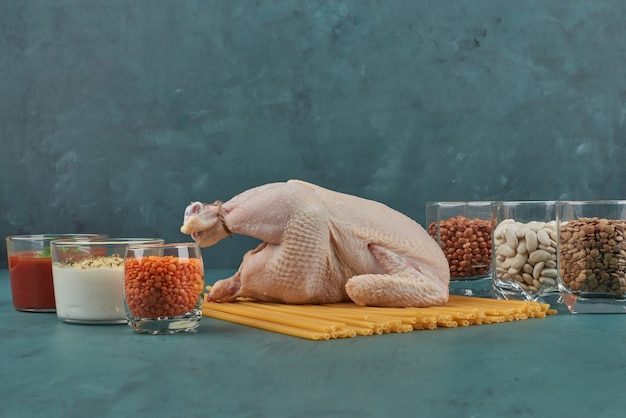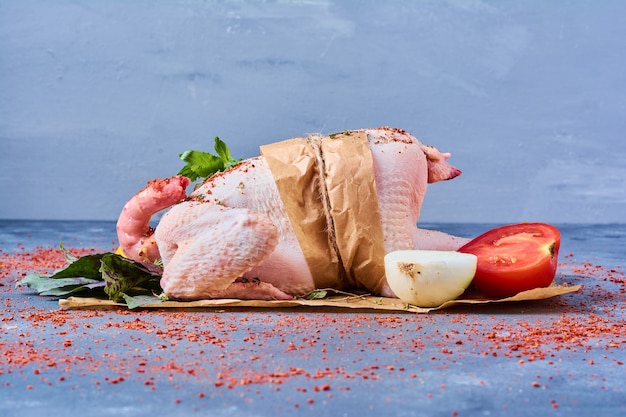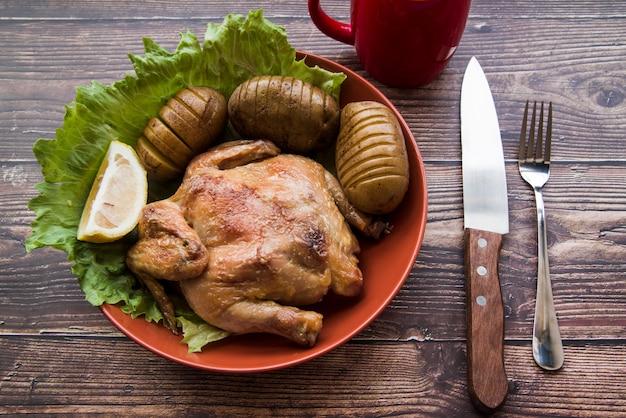properties of turkey meat
Turkey is known as one of the native birds of North America and is very popular in Canada and America. Aside from its delicious taste, many consider turkey meat to be a rich source of protein and nutrients. But this bird is not that popular on our Iranian table, and for this reason, we do not know much about the properties of turkey meat.
What do we know about the nutritional value of turkey?
Before going to the properties of turkey meat, it is better to take a look at the nutritional value of the meat of this bird. Two thick slices (84 grams) of turkey contain the following:
117 calories
24 grams of protein
2 grams of fat
Vitamin B3
Vitamin B6
Vitamin B12
Roy
sodium
phosphorus
Colleen
magnesium
potassium
The nutritional value of turkey depends on the cut part. For example, dark meat, which is found in active muscles such as the leg or thigh, has more fat and calories compared to white meat, or for example, white meat is slightly higher in protein.
What are the properties of turkey meat?
Now it’s time to learn more about the properties of turkey meat and see why you should add the meat of this bird to your meals:
A healthy source of protein
As we know, protein is important for muscle growth and maintenance, builds cell structure, and plays a role in transporting nutrients throughout the body. Apart from this, if you follow a high protein diet, you will feel fuller and lose weight as a result.
Turkey contains 24 grams of protein in 2 thick slices. You’re probably saying to yourself that meat from birds and other animals also have protein, so what’s the difference? Research shows that eating other foods like red meat increases the risk of colon cancer and heart disease, while turkey is a very healthy alternative.
Rich in B vitamins
As we said in the nutritional value list above, turkey meat contains a lot of vitamins B3, B6 and B12. B vitamins have the following benefits:
Vitamin B3: This vitamin helps to produce energy and healthy communication of body cells.
Vitamin B6: This vitamin plays a role in the formation of amino acids in the body and helps in the production of neurotransmitter cells.
Vitamin B12: The body needs vitamin B12 to produce DNA and form red blood cells.
Apart from these vitamins, you can also get folate and vitamins B1 and B2 by eating turkey.
A rich source of minerals
Turkey is full of selenium, zinc and phosphorus; Minerals that help produce thyroid hormones in the body and regulate the body’s growth rate and metabolism, protein synthesis and enzyme reactions, and improve bone health. In addition, turkey meat provides a small amount of magnesium and potassium that your body needs.
One of the best properties of turkey meat is its low fat content, and because of this, it has a very high speed to flap its wings and get away from predators. Fat plays an important role in a healthy diet, and the fats in turkey are generally unsaturated, which break down in the body and help provide energy. related content : harmful fruits
However, feeding the turkey and how it is cooked can also affect the fat content. For example, frying turkey meat or making schnitzel out of it can add more fat to your body.
Improve heart health
Low fat, high protein and the presence of many micronutrients in turkey make its meat a suitable option. Studies also show that consuming turkey meat and replacing it with red meat reduces the risk of cardiovascular diseases by 19%.
If someone in your home suffers from blood fat or has a history of various heart diseases, we suggest you use turkey meat instead of other meats.
Why should we not go for processed turkey meat?
Although this meat has many benefits, processed versions contain too much sodium, which can destroy all the benefits of turkey meat. Processed types of this meat, such as ham, turkey, sausage, and even nuggets, have a lot of salt that acts as a preservative and flavor enhancer for these products.
Research shows that excessive salt consumption, apart from raising blood pressure, increases the risk of stomach cancer. Consequently, if you want to add turkey meat to your diet, you should go for natural options and avoid processed products. But if we don’t buy processed products, how can we eat it?
How to add turkey meat to our diet?
Since turkey meat doesn’t taste much different from other meats and in some ways is more delicious, you can add it to your diet in many ways. You can get turkey meat fresh or frozen from different stores all year round.
Turkey is usually cooked in the oven as a roast, but depending on what you’re cooking, you can place it in a slow cooker over low heat. Here is a list of foods to which you can add turkey as a substitute for other meats:
Spinach and plum stew
Vegetable stew
Turkey schnitzel
Stuffed turkey
Pasta with turkey meat
Bean pilaf with turkey meat
Fasanjan stew with turkey meat
Caesar salad with turkey meat
Turkey sandwich



